Video Shows “Freaking Massive” Great White Shark Circling Man’s Kayak. It Was a “Huge Gray Submarine.”
“One of the most spectacular experiences of my life,” he says.
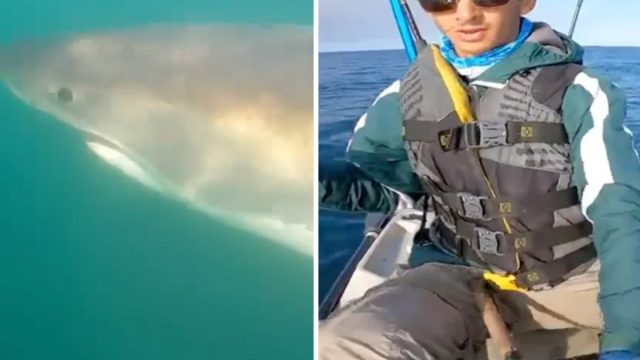
Meeting a great white shark in the open ocean would be a hair-raising event at the best of times—but for fisherman Ilan Toussieh, the experience was beyond anything he had ever experienced. Toussieh was kayaking in the waters off California’s central coast back in July when he noticed what looked like a “huge gray submarine” passing underneath his little boat. Toussieh soon realized the submarine was actually one of the most dangerous apex predators on Earth—the great white shark. Here’s what happened, and how Toussieh survived the encounter.
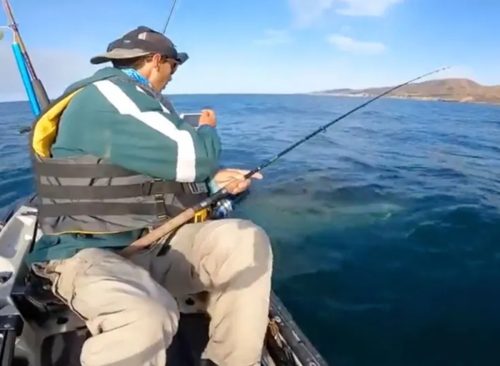
Toussieh was out fishing in his kayak when he noticed something in the water—a “freaking massive” great white shark, which was ominously circling his boat. “That’s a huge great white shark, oh my god!” Toussieh can be heard saying in the video footage. “That’s a huge, huge great white shark. Oh my god, that’s the size of my kayak.” Keep reading to learn more and see the video.
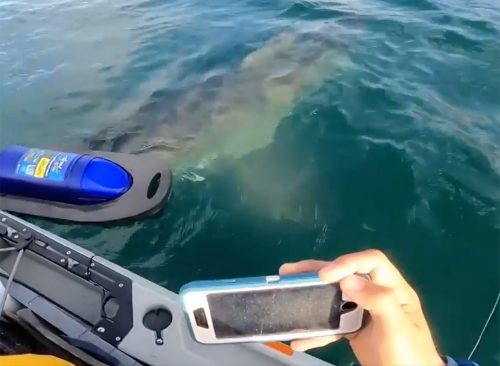
“The shark was about as long as my kayak and nearly just as wide,” Toussieh told HuffPost. “Realizing it could easily flip my kayak had it wanted to, I felt intimidated as I thought my life was potentially in jeopardy. As it calmly circled me I realized there was not much I could do about it and just relaxed and enjoyed the ride. Trying to escape would likely lead to the shark becoming more curious and possibly identifying me as a prey item, so I stayed put and did my best to record the predator on my GoPro cameras.”
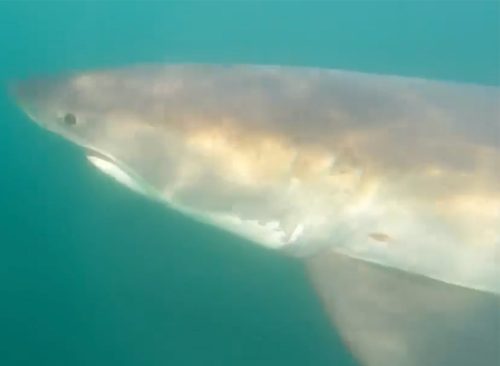
Toussieh likes to post videos of his adventures on his “Fisherman’s Chronicles” YouTube channel—and managed to get spectacular footage of the shark, including underwater video which he posted online. The shark eventually left Toussieh in peace and swam away, much to the fisherman’s relief. “This turned out to be one of the most spectacular experiences of my life, and I believe I captured one of the best kayaker/great white interactions ever,” he said.
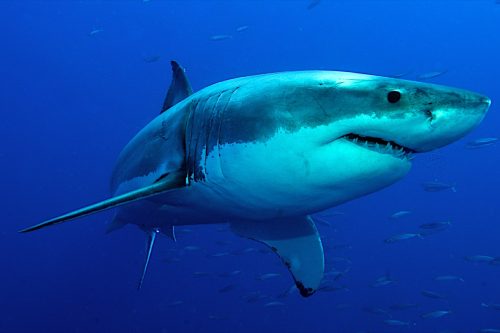
Experts say great white sharks don’t intentionally hunt humans—they just have blind spots where humans can be mistaken for seals. This theory might explain why sharks target surfers. “Great white sharks are often portrayed as ‘mindless killers’ and ‘fond of human flesh.’ However, this does not seem to be the case, we just look like their food,” says Laura Ryan, a neurobiologist at Macquarie University in Australia.
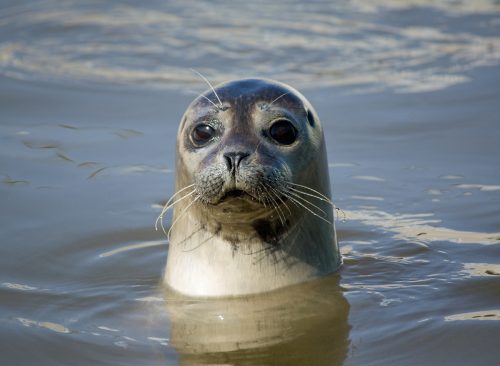
Ryan performed experiments to try and recreate what a shark sees when it’s swimming. “We attached a GoPro to an underwater scooter, and set it to travel at a typical cruising speed for predatory sharks,” Ryan said. The result? People have a striking resemblance to seals from a shark’s point of view. “I knew there would be some similarities, but maybe not to the extent we found,” Ryan said. “Specifically, I thought swimmers might not be as similar as a surfer to a seal as they typically aren’t involved in as many shark bites. However, the swimmers were also difficult to tell apart from a seal.”














